Posted on 8/17/2022
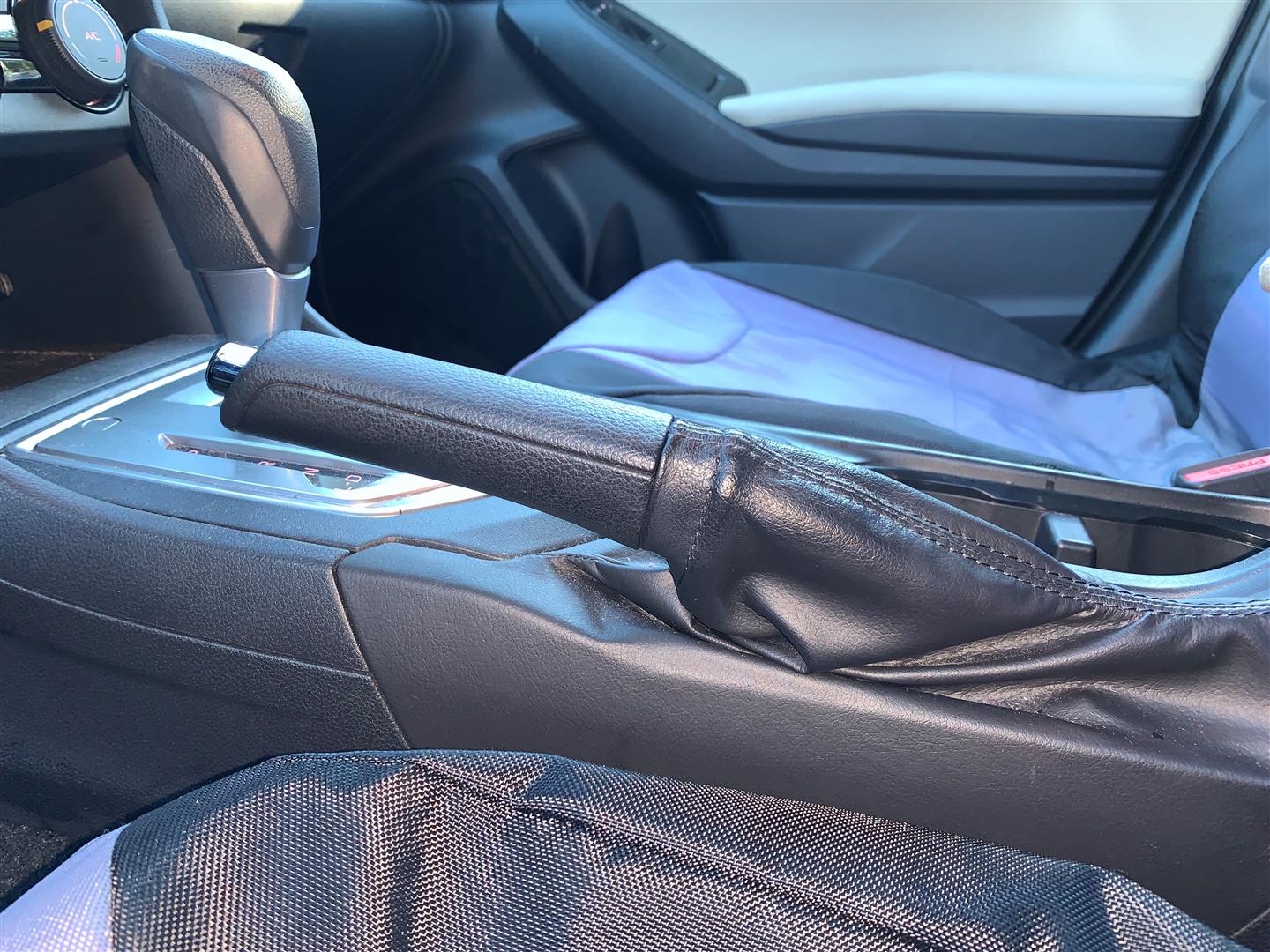
Out of all the buttons, levers, and switches in your vehicle, the parking brake is the feature that you most likely commonly overlook. The parking brake is also known as the emergency brake, e-brake, or handbrake. And is more important than you think. Find out how often you should be engaging your e-brake and why. How Does The Parking Brake Work? The parking brake is part of your vehicle’s overall braking system. It is a vital part of keeping your car from moving after you’ve parked it. The emergency brake was originally designed to be the secondary braking mechanism that would stop your vehicle if your main braking system failed. The parking brake will press against your rear brakes with less force than the primary braking system. Many people use the parking brake to keep their car in place when parked, especially on hills or steep inclines. When you shift your car into “Park”, you engage a device called the parking pawl. The pawl is a ... read more
Posted on 8/4/2022
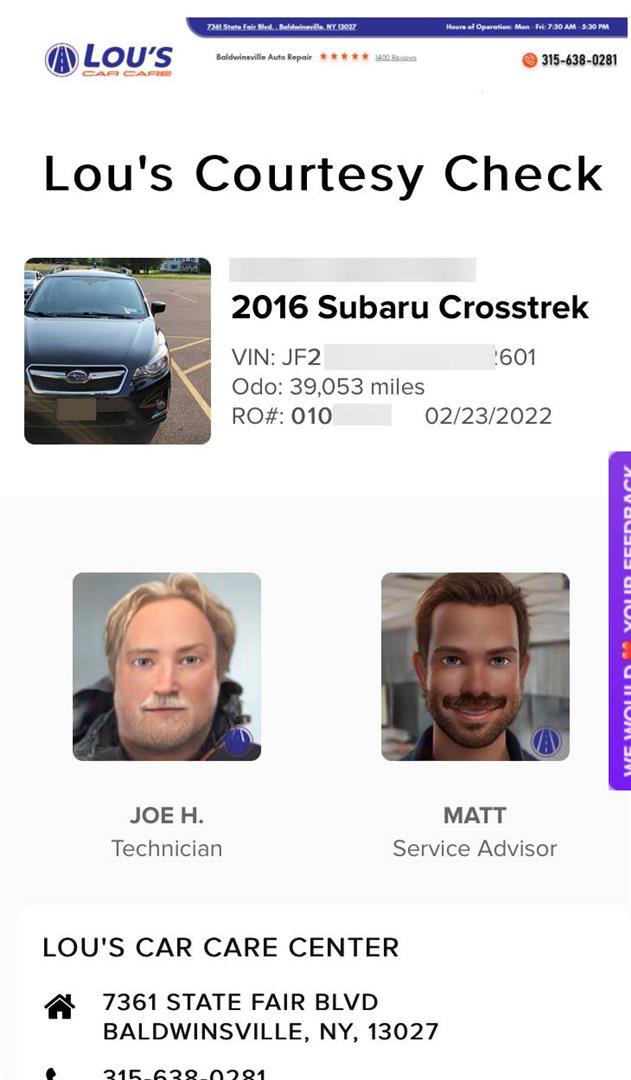
Technology is advancing every day, especially in the automotive industry. By staying ahead of the curve, we are able to provide you with exceptional automotive service. That is why we offer Digital Vehicle Inspections (DVI). The DVI is like a report card for your vehicle. It shows you the complete condition of your car. The DVI also includes photos, so you can see what we see. And keep you informed every step of the way. We want to educate you on the inner workings of your car so you can make informed decisions on the repairs that may need to be done. Our highly skilled technicians use tablets to digitally inspect your vehicle. They visually look for areas that may need to be repaired or replaced. The technicians are able to take pictures, recommend work that may need to be done and add detailed notes to explain their findings. Some photos ... read more
Posted on 7/27/2022
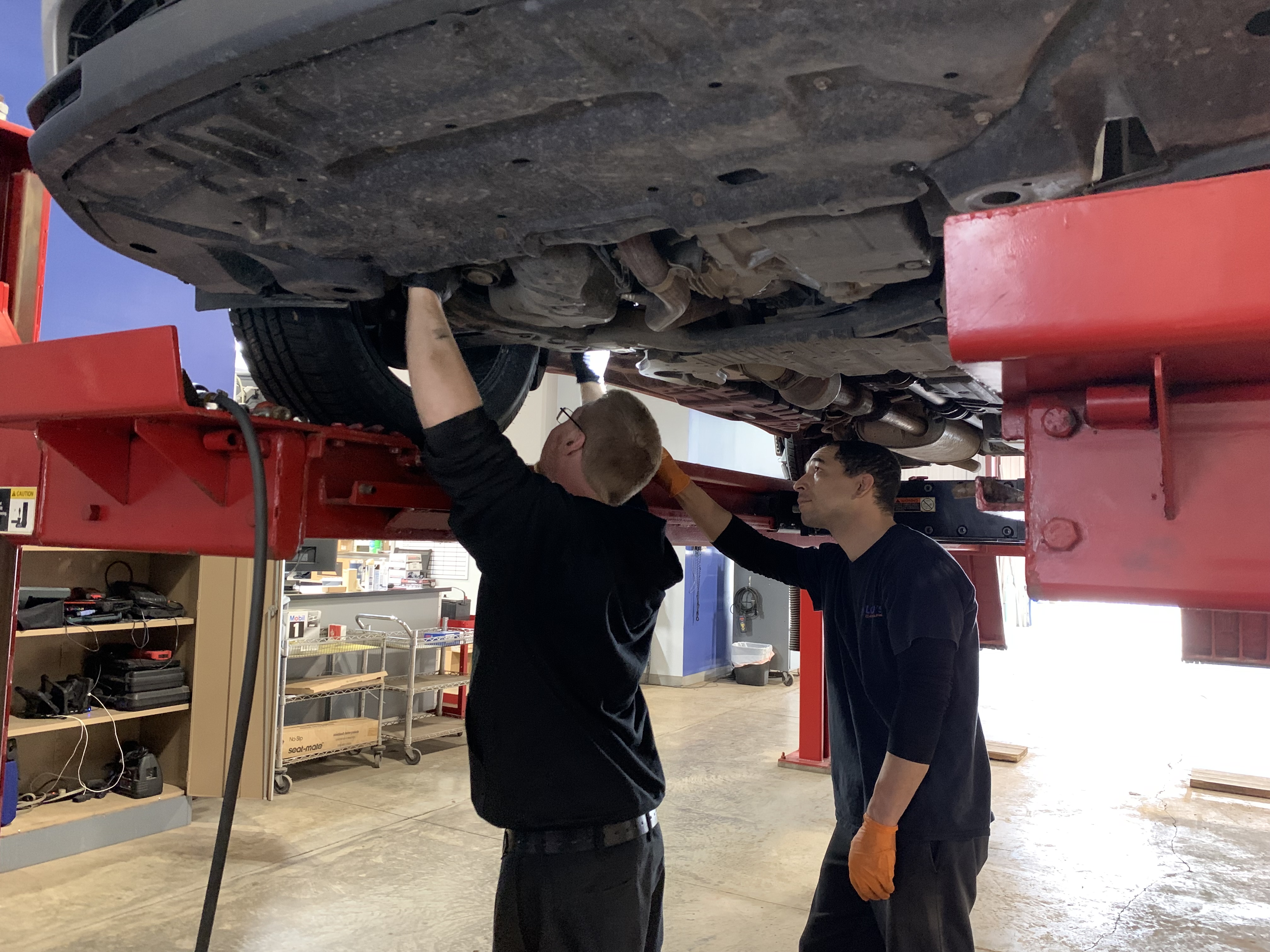
, A clunking, rattling, or squeaking noise from your front end while driving can be annoying and unnerving. Oftentimes, this noisy symptom means there is a problem with your vehicle’s suspension system. These sounds typically occur when driving over uneven surfaces, bumps, or potholes. Here are some of the potential causes for the clunking noises you hear while driving. Loose Control Arms Control arms connect the frame of the vehicle to the wheel hub assembly or steering knuckle. They move up and down with a spring when your car hits a bump or road irregularity. Control arms are part of the suspension system. They allow the tires to maintain full contact with the road at all times. One of the earliest signs of a loose or damaged control arm is hearing a clunking or popping sound when you drive over uneven roads. This sound can also be heard when you speed up or slow down while driving. Worn Ball Joints Ball joints are one of t ... read more
Posted on 7/18/2022
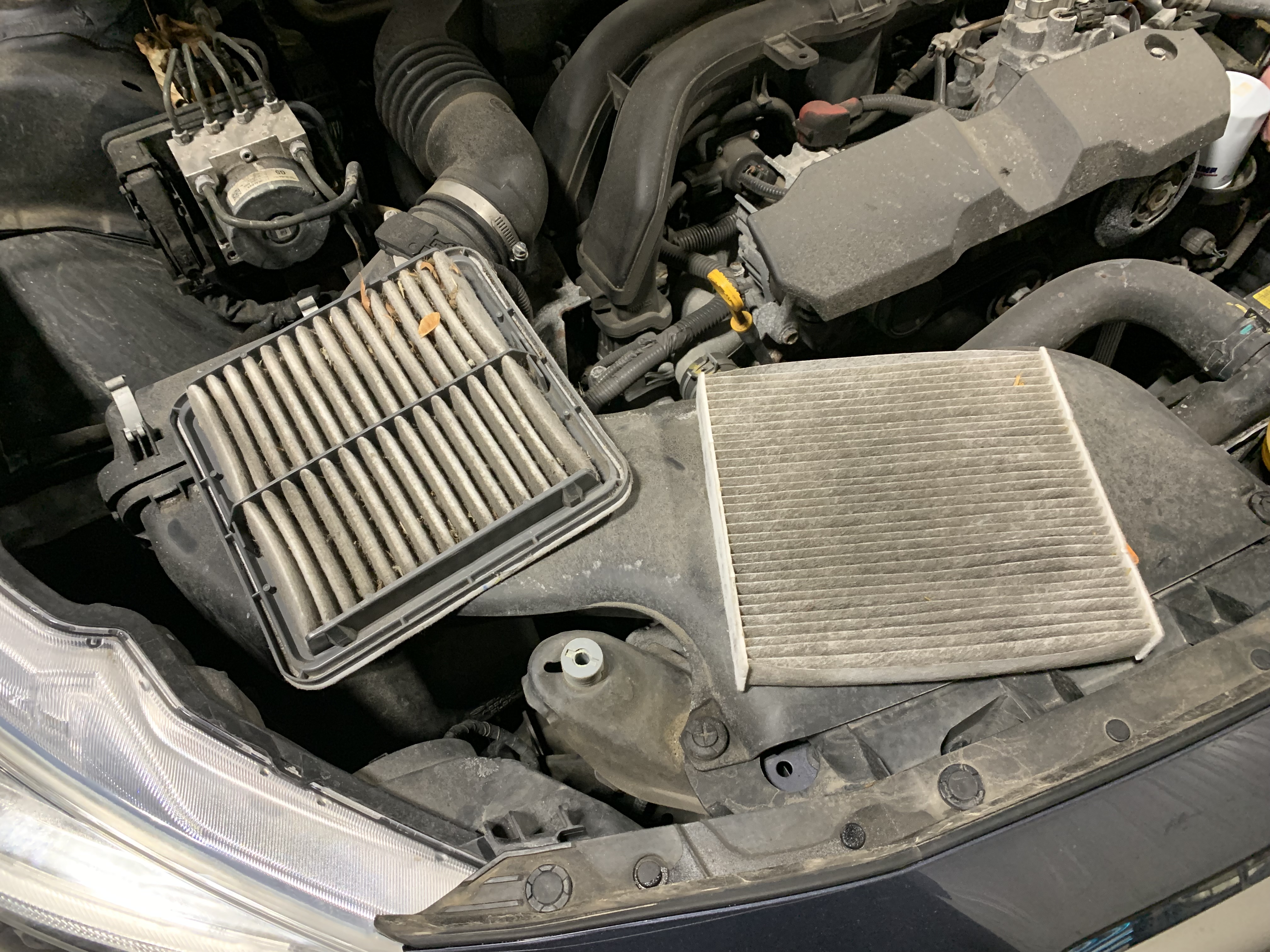
Your car, truck, or SUV is likely one of the most expensive items you own. Routine maintenance is important in prolonging the life of your vehicle. And protecting your investment. Air filters are common maintenance items that are often overlooked. However, they are necessary in order to keep your vehicle performing at its best. Do you know the four main filters to change in your car? Learn more about these filters and why they are essential to the long-term health of your vehicle. All vehicles have four, main filters that should be replaced regularly. The air filter, cabin filter, oil filter, and fuel filter catch impurities and contaminants within the systems they are located. When one or more of these filters becomes clogged, it can cause issues with your vehicle and affect its performance. What Is An Oil Filter? Oil filters trap contaminants such as dirt, metallic particles, and oxidized oil that can become suspended in the motor oil ... read more
Posted on 6/30/2022

Regular oil changes and scheduled maintenance are important in keeping your car, truck, or SUV in top shape. But do you know what the consequences are when you don’t keep up with your oil changes? Here are the top 3 signs your vehicle may have an oil leak. Motor oil moves through a running engine and allows all the parts and components to work together smoothly. Your engine oil becomes dirty and filled with contaminants over time. This contaminated oil will begin to cause the engine parts to rub together and wear down. Motor oil will eventually make its way through any pockets, holes, and broken seals caused by the friction of the dirty oil. And will begin leaking out. Signs Of An Oil LeakDark Brown/ Black Puddles Under Your Car Dark fluid dripping from un ... read more
Posted on 6/13/2022
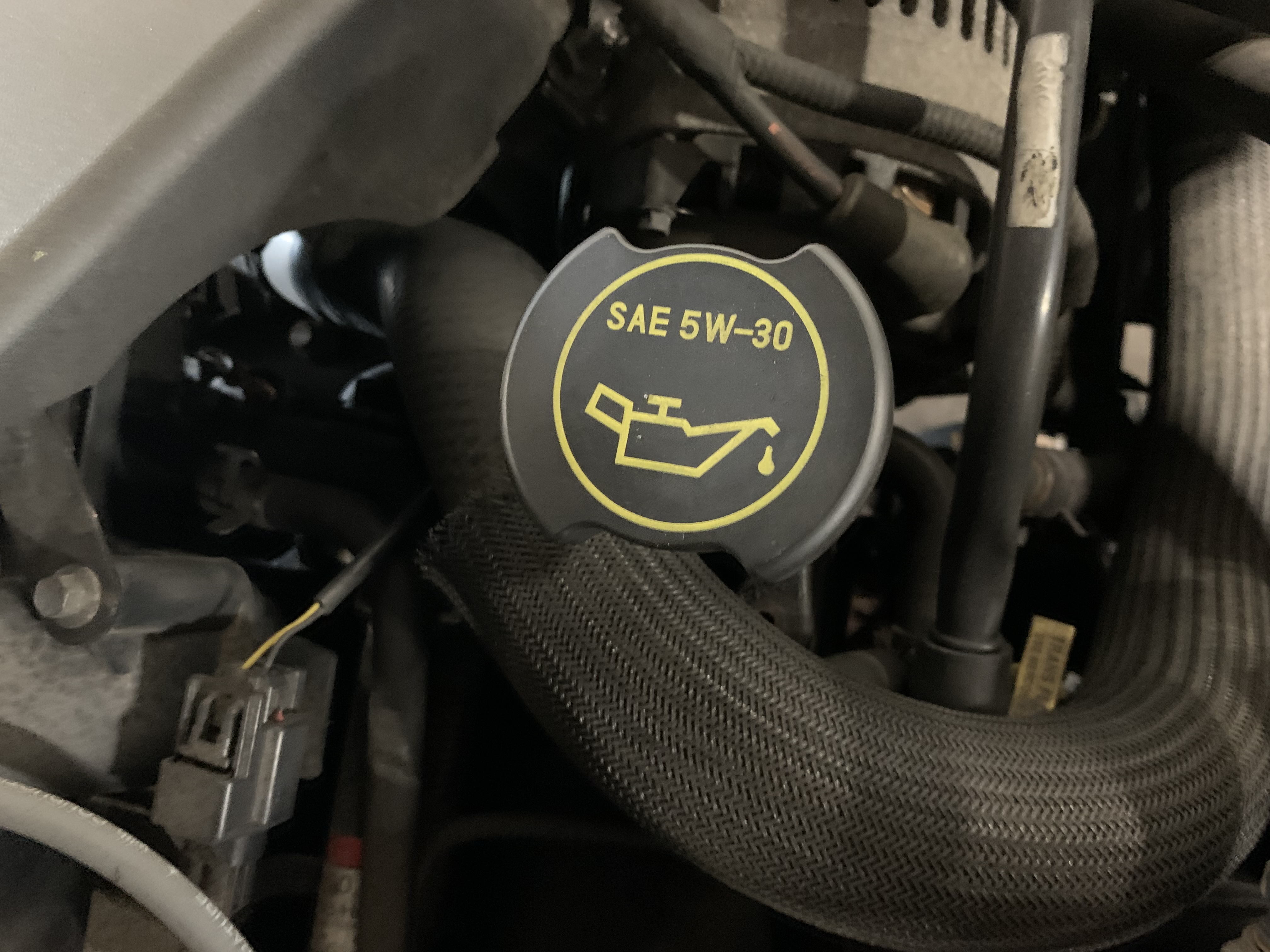
One of the most common maintenance services performed on a vehicle is an oil change. Typically, you’d get an oil change every 3,000 - 5,000 miles. But do you know if your car takes Full Synthetic or Synthetic Blend Oil? Here’s what you need to know about the two types of motor oils. Motor oil pumps through a running engine via small passages called galleries. It lubricates, cleans, and cools engine parts. It also holds abrasive particles and chemical contaminants in suspension. Regular oil changes are necessary to keep your engine running smoothly. Synthetic Blend Oil Synthetic Blend motor oil is a mixture of synthetic and conventional base oils. Synthetic blends offer better performance and protection than you would get with a conventional oil alone. This type of oil also offers extra protection against changing temperatures. And is not as susceptible to evaporation as conventional oils. Ful ... read more
Posted on 6/1/2022
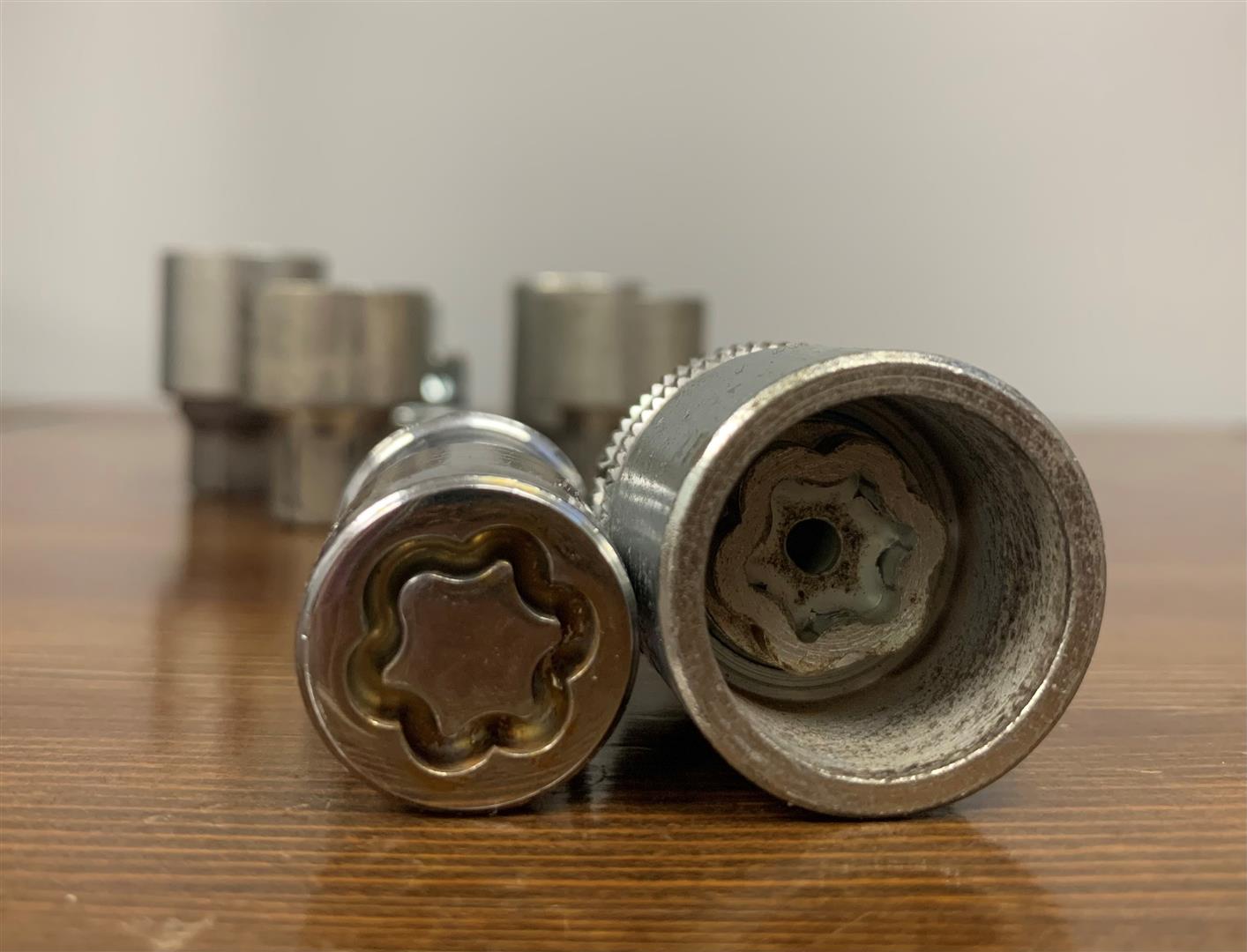
Wheel locks are locking lug nuts on each wheel that contain theft-deterring sockets. They are just like standard lug nuts but require a wheel lock key to be removed. Each set of wheel locks has its own key. Wheel lock keys are unique sockets that match the pattern on your wheel locks. Your tire, rim, and wheel cannot be easily removed without the wheel lock key. These locks are used to deter criminals from stealing your wheels only- not your car. What Happens If You Lose Your Wheel Lock Key? A dealer or manufacturer can replace the key if you have the code to your wheel lock key. Sometimes, you can order a replacement online if you have the brand, make, or model of your wheel locks. If all else fails, you will have to pay a professional to have your wheel locks removed. Some wheel locks can be removed without a key. By using special sockets that dig into the metal grip on the outside of the wheel lock, they then can be twist ... read more
Posted on 5/25/2022
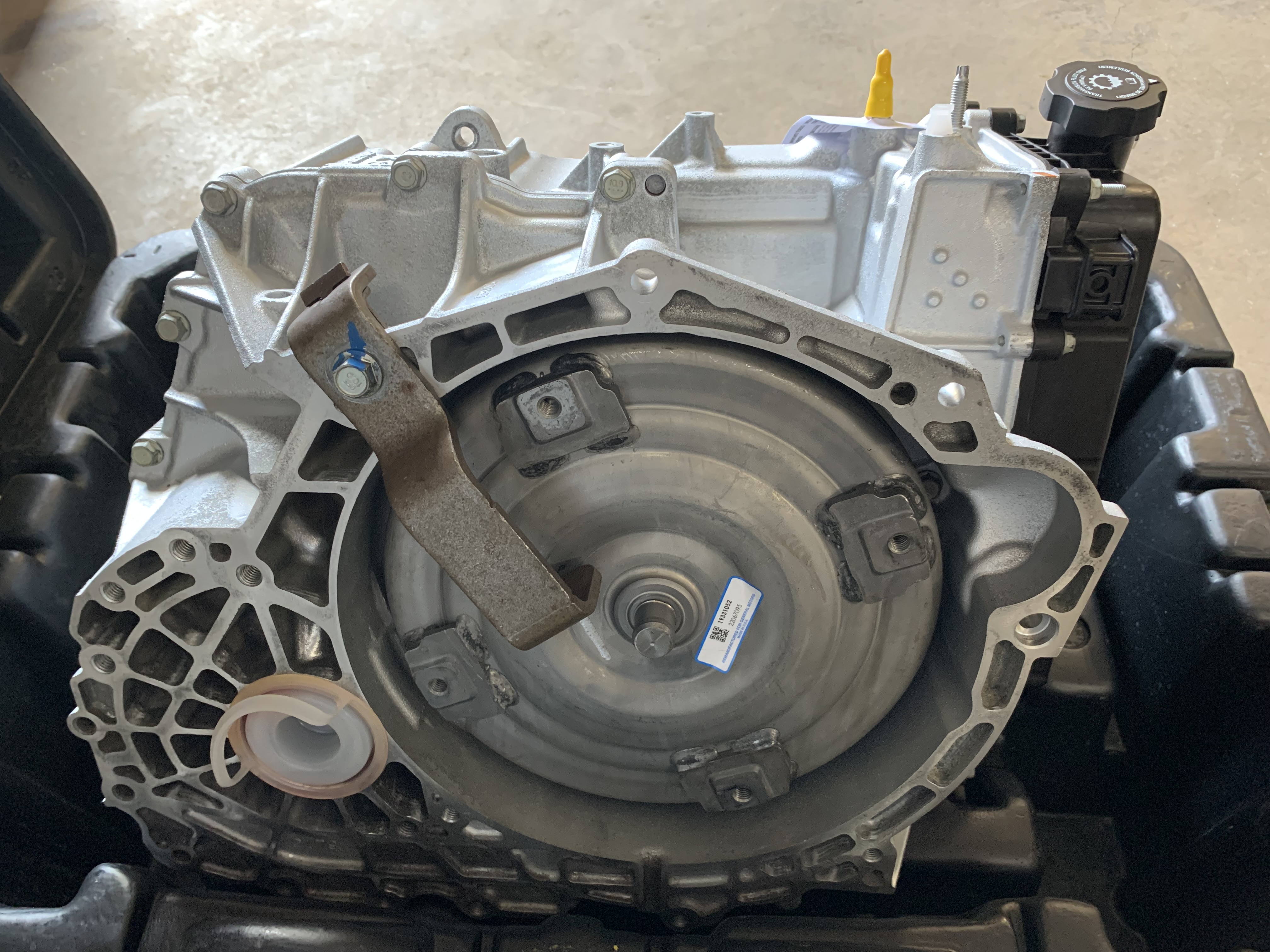
One of the most common transmission issues you can have is a slipping transmission. Slipping occurs when the transmission tries to change gear but falls back into the gear it was previously in. Or drops into neutral. Slipping doesn’t necessarily mean that your transmission is about to fail. But it is a sign that it is in serious need of service or repair. Schedule an appointment as soon as you can with a mechanic who can look into your issue. Symptoms of A Slipping Transmission The source of a transmission slip can be caused by various reasons. Diagnosing the issue can be a challenge, but here are some common signs to look for: Automatic Transmission Transmission tries to upshift, then falls back into a lower gear Transmission refuses to upshift Hard/rough gear changes Unusual noises when shifting Engine RPMs increase when stepping on the gas, but the vehicle speed doesn’t Check Engine Light is on Manual ... read more
Posted on 5/24/2022
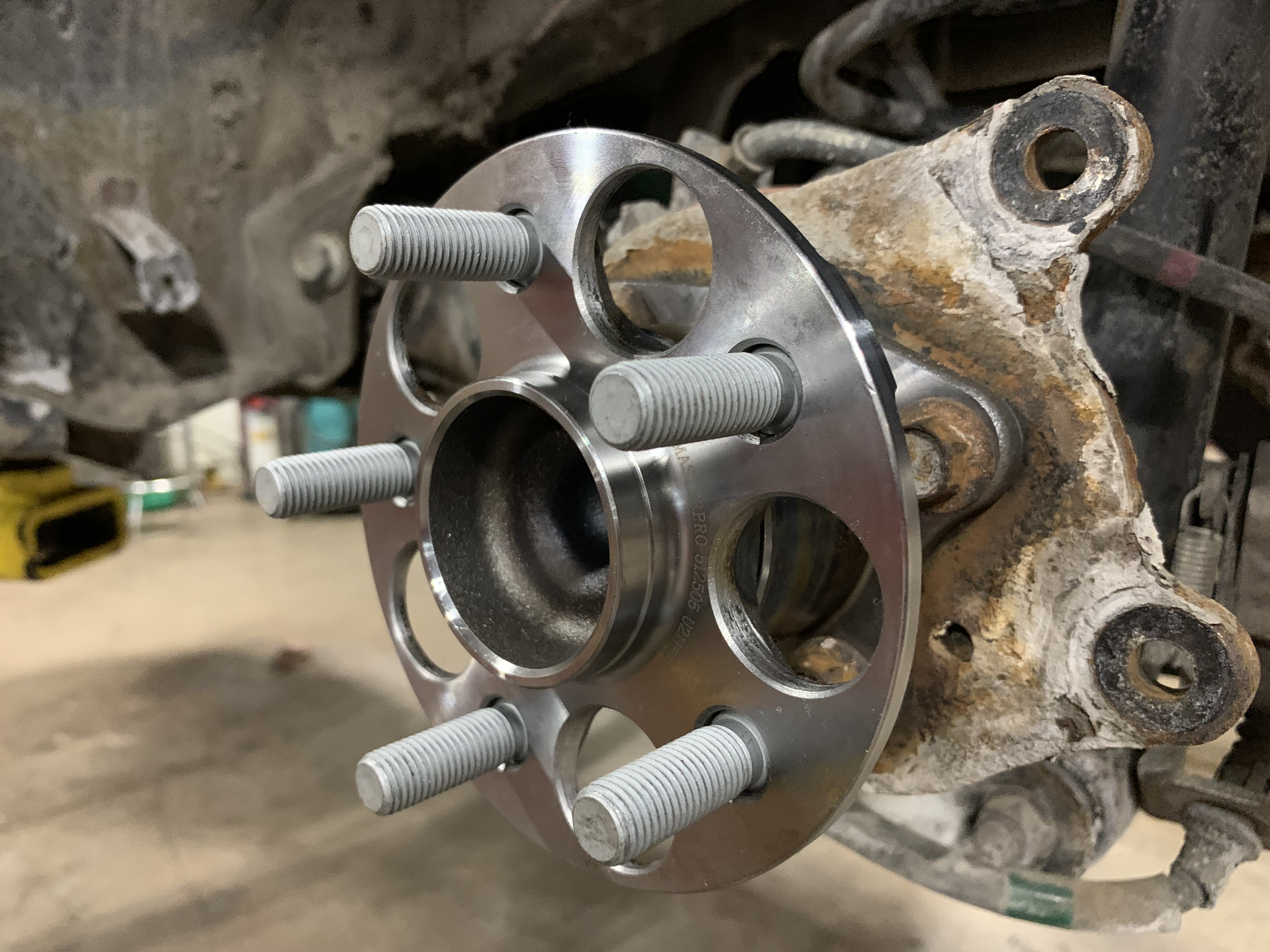
A wheel bearing is an important part of a vehicle’s braking, steering, and suspension systems. It is the component that connects the wheel to the axle and allows the wheel to turn. A wheel bearing is a set of steel ball bearings or tapers that are tightly packed in a grease-filled metal ring. They are engineered to support the entire weight of the vehicle and enable the wheel to rotate smoothly with minimum friction. Why Do Wheel Bearings Fail? Wheel bearings can fail for a variety of reasons and can also be damaged. They are especially vulnerable if you hit a tall curb, pothole, or speed bump at a high speed. If water, road salt, or mud gets past the waterproof seal and touches the bearings, it will contaminate the grease and cause the bearings to wear down and break prematurely. Top Warning Signs Your Wheel Bearings Need ReplacementNoise While Driving ... read more
Posted on 5/2/2022
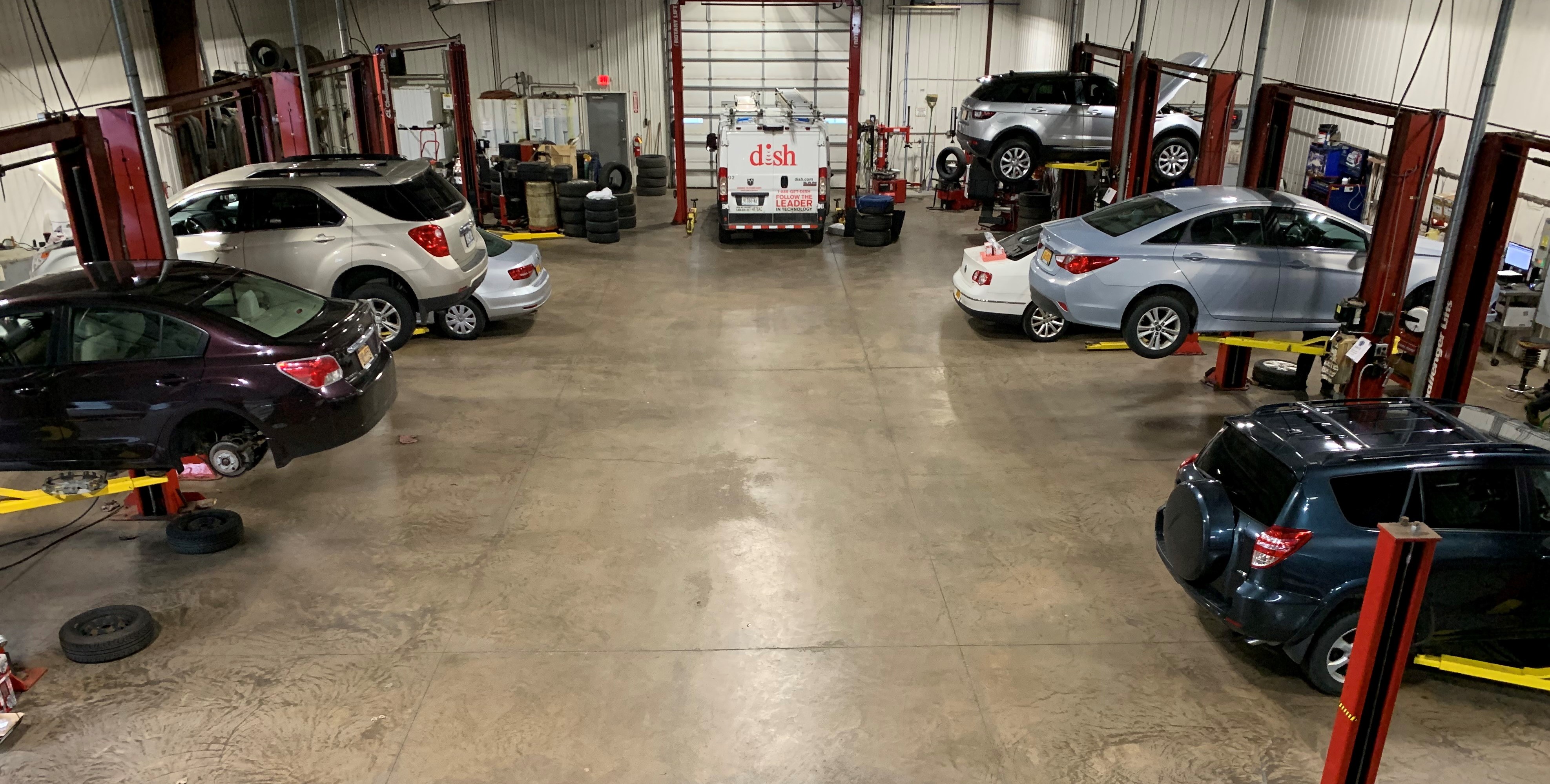
Vehicle maintenance at regular intervals helps keep your car in proper working order. And can prevent expensive repairs down the road. Even the most well-maintained cars will experience unexpected service problems. But it is better to be proactive rather than reactive. Keeping detailed service records can also help boost your car’s value when you decide to sell it or trade it in. Failing to follow preventative maintenance guidelines could even void your car’s warranty. Use this guide to learn about common maintenance recommendations. 3,000 – 5,000 miles – Oil Change An Oil Change is the most standard maintenance service for every car owner. An oil change every 3,000 - 5,000 miles is essential for keeping the key parts of your engine working properly. We recommend having your tires rotated every 5,000 miles to ensu ... read more